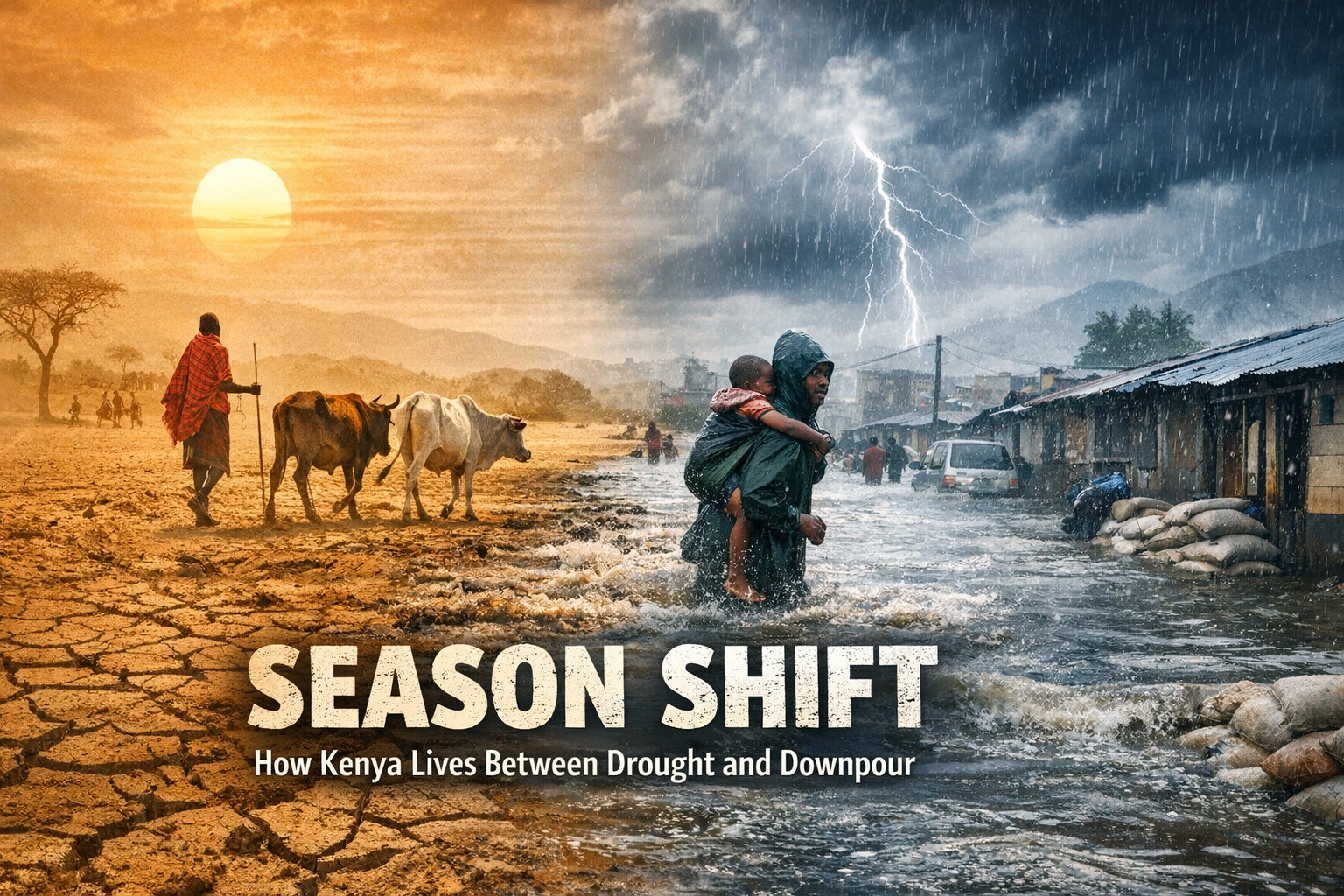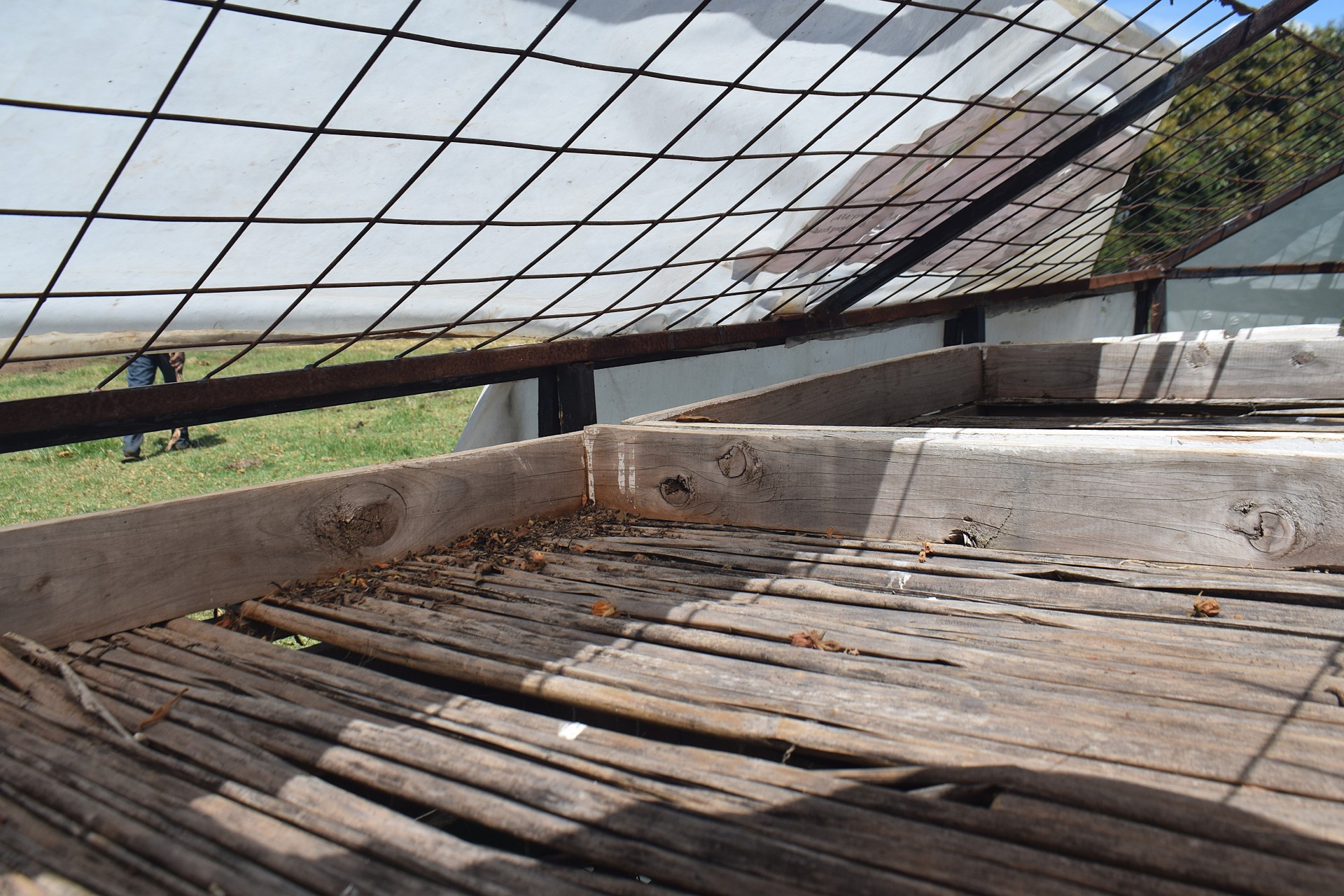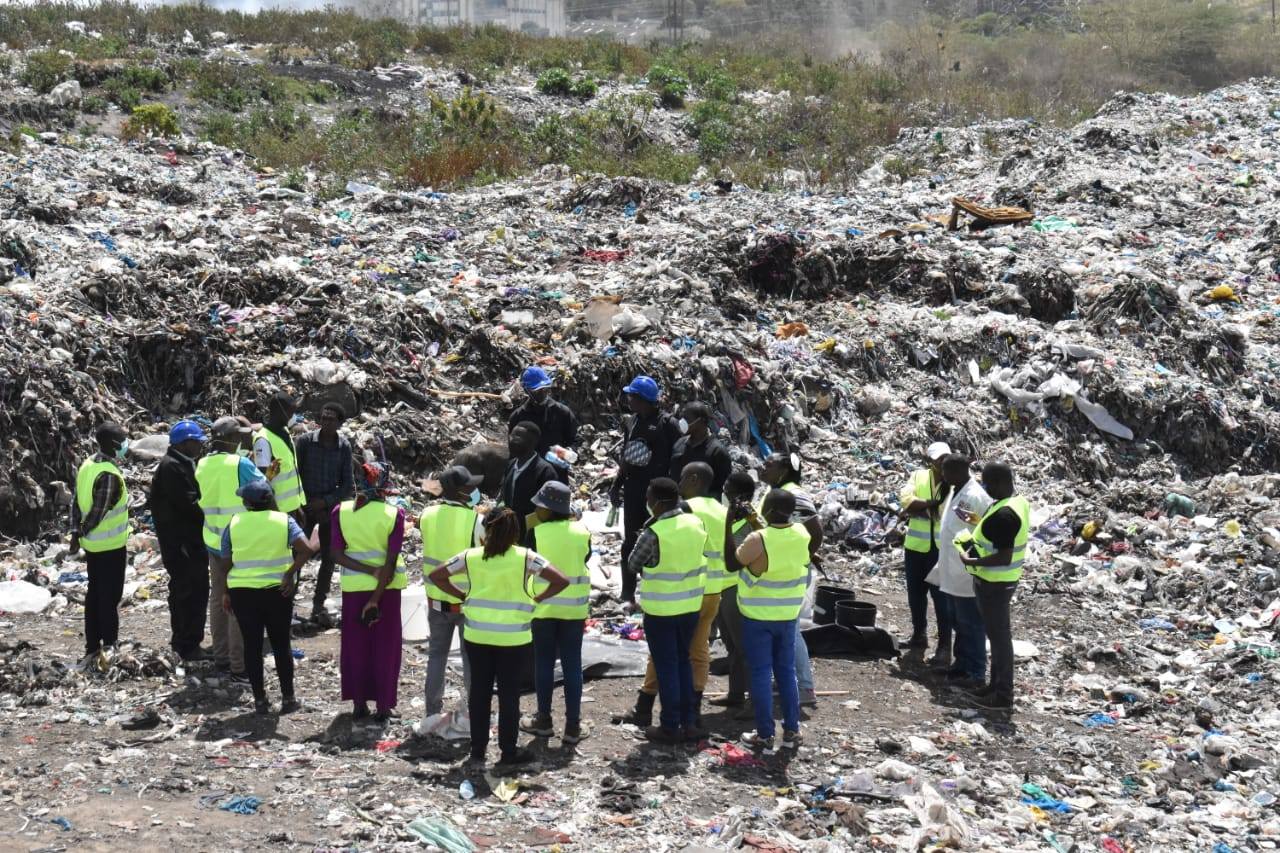Latest Stories
Season Shift: How Kenya Lives Between Drought and Downpour
03 Mar, 2026 04:33 PM
Across the country, weather patterns swing between prolonged dry spells and sudden heavy storms. The Kenya Meteorological Department has reported delayed rains, short intense bursts, and uneven distribution across regions. For many communities, this means
Across the country, weather patterns swing between prolonged dry spells and sudden heavy storms. The Kenya Meteorological Department has reported delayed rains, short intense bursts, and uneven distribution across regions. For many communities, this means
Why This Year’s Ocean Conference Is a Defining Moment for Africa
03 Mar, 2026 02:41 PM
By hosting this conference, Kenya seeks to leave a permanent mark on global ocean governance. The summit will confront escalating pressures from climate change, illegal fishing, and pollution, while turning collective ambition into action. A central focus
By hosting this conference, Kenya seeks to leave a permanent mark on global ocean governance. The summit will confront escalating pressures from climate change, illegal fishing, and pollution, while turning collective ambition into action. A central focus
How Solar Powered Cold Storage is Cutting Post-Harvest Losses in Kenya
25 Feb, 2026 04:53 PM
Food spoilage contributes to Kenya’s greenhouse gas emissions. Decomposing organic waste produces methane, a major contributor to the nation’s emissions. Locally, the absence of energy-efficient cooling forces communities to rely on diesel generators
Food spoilage contributes to Kenya’s greenhouse gas emissions. Decomposing organic waste produces methane, a major contributor to the nation’s emissions. Locally, the absence of energy-efficient cooling forces communities to rely on diesel generators
Weather Agency Warns Counties Ahead of 3pm Downpour
21 Feb, 2026 10:13 AM
Counties on high alert include Migori, Nyamira, Bungoma, Kakamega, Embu, Murang’a, Nyeri, Tharaka Nithi, Kisii, Narok, Kajiado, Makueni, Machakos, Kericho, Bomet, Taita Taveta, Kitui, Kwale, Mombasa, southern Tana River, and Kilifi.
Counties on high alert include Migori, Nyamira, Bungoma, Kakamega, Embu, Murang’a, Nyeri, Tharaka Nithi, Kisii, Narok, Kajiado, Makueni, Machakos, Kericho, Bomet, Taita Taveta, Kitui, Kwale, Mombasa, southern Tana River, and Kilifi.
Failed Rains Amplify Climate Struggles Across Kenya
11 Feb, 2026 06:36 PM
Drought in Kenya is no longer just an environmental challenge—it is a humanitarian, economic, and public health crisis. As climate change tightens its grip, the task ahead is not only to respond to emergencies but to build resilience in communities living
Drought in Kenya is no longer just an environmental challenge—it is a humanitarian, economic, and public health crisis. As climate change tightens its grip, the task ahead is not only to respond to emergencies but to build resilience in communities living
Electric Shift: What Kenyans Should Know Now
06 Feb, 2026 03:06 PM
The introduction of these electric vehicles pushes Kenyans to adapt to the new policy as well as giving perks to some. Those with the number plates may receive lower parking costs and may access special parking places.
The introduction of these electric vehicles pushes Kenyans to adapt to the new policy as well as giving perks to some. Those with the number plates may receive lower parking costs and may access special parking places.
World Wetlands Day: Kenya’s Climate Story Beyond February 2
03 Feb, 2026 10:49 AM
Kenya’s observance at Merire Wetland is therefore a chapter in an ongoing narrative. The Ramsar Convention may have been signed 55 years ago, but its spirit is alive in every effort to restore, protect, and reimagine wetlands as cultural heritage and clim
Kenya’s observance at Merire Wetland is therefore a chapter in an ongoing narrative. The Ramsar Convention may have been signed 55 years ago, but its spirit is alive in every effort to restore, protect, and reimagine wetlands as cultural heritage and clim
How Communities in Baringo Transform Conservation Into Solutions
29 Jan, 2026 12:19 PM
On October 16, 2025, the Kenya Forest Service (KFS), through the Green Zone initiative, celebrated a milestone: the graduation of a new cohort from the Sesya Forest Farmers Field School.
On October 16, 2025, the Kenya Forest Service (KFS), through the Green Zone initiative, celebrated a milestone: the graduation of a new cohort from the Sesya Forest Farmers Field School.
How Kenyan Farmers Boost Quality Yields with Solar Dryers
28 Jan, 2026 05:21 PM
Now, with modern dryers, farmers can preserve pyrethrin content, reduce losses, and focus on other activities—though market instability and environmental concerns still cast shadows over their gains
Now, with modern dryers, farmers can preserve pyrethrin content, reduce losses, and focus on other activities—though market instability and environmental concerns still cast shadows over their gains
Why we Should Worry about Disappearing Birds
27 Jan, 2026 04:19 PM
The 2025 National Wildlife Census reveals catastrophic declines in waterbird populations at Elementaita, Nakuru, Naivasha, and Mida Creek—underscoring the urgent need for stronger conservation measures. Yet in Turkana’s remote Lake Logipi, a spectacular c
The 2025 National Wildlife Census reveals catastrophic declines in waterbird populations at Elementaita, Nakuru, Naivasha, and Mida Creek—underscoring the urgent need for stronger conservation measures. Yet in Turkana’s remote Lake Logipi, a spectacular c
Clean Energy Day Proves Fossil Fuels Belong to the Past
26 Jan, 2026 04:32 PM
UN Secretary-General António Guterres declared that the world is entering a “clean energy age.” This evidence was clear as global renewable capacity surged past 4,400 gigawatts, solar power alone grew by more than 450 gigawatts, and, for the first time in
UN Secretary-General António Guterres declared that the world is entering a “clean energy age.” This evidence was clear as global renewable capacity surged past 4,400 gigawatts, solar power alone grew by more than 450 gigawatts, and, for the first time in
Nakuru County Moves to Make Gioto Safer Through Recycling
22 Jan, 2026 11:43 AM
Gioto has been Nakuru’s main dumpsite since 1972, covering about 50 hectares and receiving an estimated 250 tons of waste daily. Trucks and tractors offload garbage while families, especially women and children, scavenge for plastics, metals, and food scr
Gioto has been Nakuru’s main dumpsite since 1972, covering about 50 hectares and receiving an estimated 250 tons of waste daily. Trucks and tractors offload garbage while families, especially women and children, scavenge for plastics, metals, and food scr







-1769677767.jpg)



